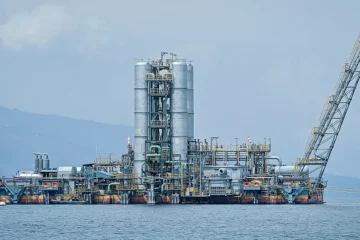As climate change continues to batter Africa with floods, droughts, and deadly heatwaves, a beacon of hope is rising, not from carbon markets or pledges at climate summits, but from the world’s highest courts.
This week, all eyes are on the International Court of Justice (ICJ) in The Hague, which is set to deliver a historic advisory opinion on what legal obligations states have in combating climate change, and what consequences could follow for the worst polluters. The move, driven by a global push for climate accountability, could reshape the legal landscape and open new doors for reparations and justice for nations like Vanuatu, and indeed, many in Africa.
While the opinion is non-binding, legal experts say it could serve as a global moral compass, influencing national courts, policymakers, and climate negotiators alike.
“This is no longer just about politics or policy, it’s about justice,” said Andrew Raine, deputy director of the UN Environment Program’s law division. “When political systems fall short, the law becomes a tool to enforce commitments and protect vulnerable communities.”
Courts Become a New Battlefield for Climate Justice
From South Africa to Senegal, the effects of climate change are disproportionately brutal, yet Africa contributes the least to global emissions. That injustice is at the core of a growing wave of climate litigation, now spreading across nearly 60 countries, with over 3,000 cases filed by the end of 2024.
While many court battles have been waged in the Global North, experts say the ripples are reaching Africa, where a new generation of activists and lawyers are watching closely, hoping global precedents will empower their own courts to hold governments and corporations accountable.
Recent legal victories have paved the way:
- In the Netherlands, a 2019 ruling forced the government to slash emissions by 25% within a year.
- In Germany, the Constitutional Court ruled in 2021 that failing to act on climate change violated young people’s rights.
- And last year, the International Tribunal for the Law of the Sea ruled that carbon emissions are a form of marine pollution, expanding the scope of responsibility beyond the Paris Agreement.
“This is a turning point,” Raine said. “The law is evolving with the science, and the courts are responding to the urgency.”
Africa’s Stake in the Verdict
For Africa, the stakes are high. Countries like Mozambique, Sudan, and Madagascar have suffered catastrophic climate disasters often with little global support. The ICJ’s upcoming opinion, requested by Vanuatu, could finally push the world to recognize a legal duty to reduce emissions and to offer reparations for damages suffered by those least responsible.
César Rodríguez-Garavito, director of the Climate Law Accelerator at NYU, noted a recent groundbreaking judgment by the Inter-American Court of Human Rights, which went as far as equating irreversible climate harm to genocide and torture under international law.
“This is the strongest statement we’ve ever had from a global court,” he said. “If that line of reasoning carries through to the ICJ, it could be revolutionary for small island states and the African continent alike.”
Will the Courts Deliver Where Politics Has Failed?
For African nations long sidelined in global climate negotiations, courts may become the new venue where long-denied justice is pursued. Reparative climate justice, a demand long echoed by African leaders may no longer be a dream, but a matter of law.
Legal opinions like the one expected from the ICJ won’t force action, but they send a powerful signal, says Raine. “They show where the law stands, and more importantly, where the world should be heading.”
As the world warms and storms grow fiercer, the voices from Africa demanding not pity, but justice, may finally be finding their answer in the halls of international law.








